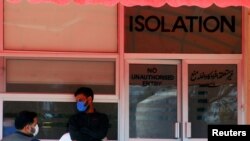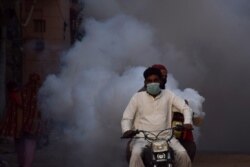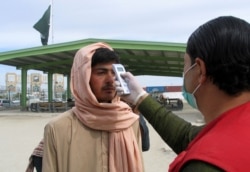Pakistan said Monday another 50 nationals returning from Iran have tested positive for coronavirus, taking the national tally of infections to at least 92, with zero deaths, and posing a major challenge to an already under pressure health care system.
Officials have not confirmed local transmissions, saying almost all of the COVID-19 cases have been imported by returnees from countries such as China, Iran, Syria, the United States, Britain and Saudi Arabia.
Most of the patients were in the southern Sindh province, where 74 were being kept in isolation wards. Two others were sent home after recovery. Hundreds more were in quarantine camps in different provincial urban centers.
Provincial government spokesman Murtaza Wahab noted a large number of the coronavirus cases involved pilgrims who returned from Taftaan, a major southwestern crossing point on the Iranian border in the Pakistani province of Baluchistan.
Local officials have warned an unspecified number of returnees used traditional illegal border crossings to avoid being placed in quarantine camps, raising fears of further transmissions.
Pakistan has sealed borders with Iran and landlocked Afghanistan until early April for all human, trade and transit movements to try to stem the spread of COVID-19 in the region.
Authorities have also delayed the post-winter reopening of the country’s only overland crossing with China, where the coronavirus caused most of the deaths and infections before spreading to other nations.
The Pakistani government on Friday ordered all educational institutions to shut, limited international flights, closed cinemas and banned wedding parties as well as large gatherings at public places across the country of more than 220 million people to contain the infection.
Existing public health emergency
Officials acknowledge the coronavirus outbreak could pose a serious challenge to Pakistan’s deteriorated medical health care system, blaming it on a lack of funding, neglect, nepotism and corruption.
“The current condition of the public health care sector in Pakistan is not less than a national tragedy and a national security issue,” Minister of Health Zafar Mirza said at a seminar in Islamabad earlier this month.
Pakistan, together with neighboring Afghanistan, are the only two countries where poliovirus remains endemic, he noted.











